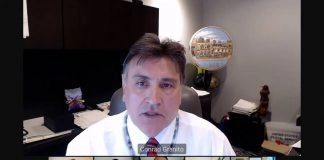Regulatory changes have swept across the European sports betting industry in recent years, as Germany and Italy introduced new requirements and the UK prepares for its white paper on the 2005 Gambling Act review.
Discussing the regulatory challenges faced by the betting industry moving forward, the guest speakers SBC Leaders – Corporate Stewardship 2030 at the Betting on Sports Europe (BOSE) event identified a need for regulator education combined with industry self-regulation as the best way to address this hurdle.
For Tim de Borle, CEO of Napoleon Sports, operators are just one part of the gambling ecosystem, and require greater cooperation and open mindedness from both regulators and operators in order to achieve sustainability.
“We can take our responsibility, but we are only one part of the ecosystem of a safe gaming environment and if regulators and legislators are not open to say even speak with us and listen to what’s really going on, we will never get to a regulation that is balanced.
“That eventually brings what we all achieve or are trying to achieve, which is a safe and fun gaming environment for our players.”
The remaining panelists, however, although agreeing that engagement with regulators is necessary, put forward their argument that the industry must regulate itself and work to educate authorities in order to avoid over-regulation – which they stated ultimately does no good for any player involved.
“I think regulations are very good – they’re needed,” said Jan Svendsen, CEO of Coolebet. “Somehow, I don’t think our industry was able to self-regulate enough. It’s been too much Wild West, too much greediness, but I guess it’s moved on because the industry has been growing very quickly over the last 20 years. It’s time to shape up and grow up and accept what is happening right now.”
Focusing on the need for regulator education, Paris Smith, CEO of Pinnacle Sports, shared her view that it should be a key priority for operators when engaging with industry overseers, especially when attempting to broaden the market or enter new jurisdictions.
“Speaking to the cost of going into regulated markets, at some point there needs to be education for the regulators,” the CEO explained,
“Everybody does their own thing, everybody has something different, every country has new integration, new changes for technology, and it is very cumbersome.
“It’s where everything is going, so we as an organisation have to invest a lot into that. We have to make sure that we have the right people and make our systems as flexible as possible.”
Finding common ground with both Smith and Svendsen, Niels Onkenhout, CEO, Nederlandse Loterij, observed that there is ‘a lot of emotion around gambling’ and ‘a lot of emotion with the regulators and the politicians,’ requiring both education but also self-regulation
“If we don’t organise ourselves in a sensible way with advertising restrictions, which make sense and resonate well with the public and as politicians, we’re screwing ourselves because you get more and more regulations,” he said.
He continued, arguing that betting companies must work to remove ‘unambious’ definitions of how problem players are categorised and how they are approached.
“Make sure we have a real definition of what our problem players are and the specific policies in place in every company to deal with this – this will get the emotion out of the discussion, which leads to sensible regulation as opposed to an ever increasing burden of regulation, which ultimately will stimulate the black and the grey markets.”
To view more panels from BOSE via Vimeo, click here
To register for free and watch panels and keynote speeches live from the SBC Summit North America, click here




